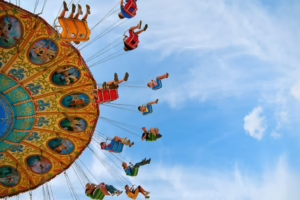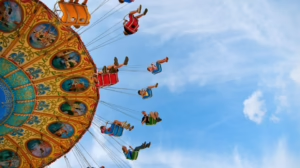The Impact of TikTok on the Music Industry: A New Era of Stars
In recent years, TikTok has emerged as a cultural powerhouse, revolutionizing how music is consumed, marketed, and created. With its short-form video format and algorithm-driven feed, the platform has created a unique environment for artists to engage with fans, share their music, and potentially launch themselves into superstardom. This article explores the impact of TikTok on the music industry and how it has ushered in a new era of stars.
The Rise of TikTok: A New Music Discovery Platform
Launched in 2016, TikTok rapidly gained popularity, particularly among Gen Z and Millennials. The platform’s addictive nature and emphasis on user-generated content have made it a go-to space for discovering new music. Unlike traditional radio or streaming services, TikTok allows songs to go viral, often outpacing conventional promotional methods.
As users create and share content featuring specific tracks, songs can quickly gain traction, leading to massive streaming spikes. A report from Billboard revealed that 75% of users say they discover new music on TikTok, a testament to its influence as a music discovery tool. Songs like "Savage Love" by Jawsh 685 and Jason Derulo and "Say So" by Doja Cat soared to popularity after being featured in viral videos.
Democratizing Fame: Opportunities for Emerging Artists
One of TikTok’s most significant contributions to the music industry is its ability to democratize fame. In an age where traditional pathways to stardom (such as record labels and radio play) can be challenging to navigate, TikTok offers a direct line to audiences. Emerging artists can showcase their talent through creative videos, reaching millions without the backing of established music industry players.
Many artists have leveraged the platform to propel their careers. Take Olivia Rodrigo, for example; her song "drivers license" gained traction on TikTok long before it became a chart-topping hit. By crafting relatable content that resonated with users, she tapped into a ready-made fanbase eager for her sound.
Challenges and Critiques
While TikTok has brought numerous opportunities, it is not without its challenges. The focus on virality can lead to songs being reduced to mere background noise in trends, often overshadowing the artistry behind them. Critics argue that this could create a culture of instant gratification, where songs are consumed and discarded quickly, rather than appreciated for their artistic merit.
Additionally, the platform’s algorithm can be biased, favoring certain types of content or genres over others, leading to a lack of diversity in the music being promoted. This can hinder niche genres or lesser-known artists from gaining exposure.
The Changing Role of Record Labels
Record labels are also adjusting to this new reality. Many have begun to scout talent based on TikTok engagement, realizing that a song’s performance on the platform can be more indicative of its commercial potential than traditional metrics. Some labels even collaborate with TikTok influencers to launch song campaigns, merging marketing strategies with grassroots engagement.
Moreover, artists are now more empowered to navigate their careers independently. With the ability to engage directly with fans, musicians can build personal brands that resonate more authentically, allowing for greater creative freedom.
A New Era of Music Consumption
The impact of TikTok extends beyond the artists; it has redefined listening habits as well. Consumers are less focused on albums or complete projects and more inclined to follow trends or challenges, leading to a shift in how music is produced. Artists increasingly release shorter tracks or snippets designed to fit the TikTok format, reflecting how the social media landscape influences artistic creativity.
Conclusion
As TikTok continues to evolve, its role in the music industry is likely to grow. The platform has created a unique ecosystem where new stars can emerge and establish significant connections with their audience. However, with these opportunities come challenges that necessitate a thoughtful approach to art and marketing. In this new era of music driven by platforms like TikTok, artists must navigate the complexities of virality while remaining true to their creative vision. The thread connecting this new generation of talent to their fans is more direct than ever, promising an exciting future for the music industry.
For more insights on TikTok’s influence on various sectors, check out [modern_footnote_source_link].


























Add Comment